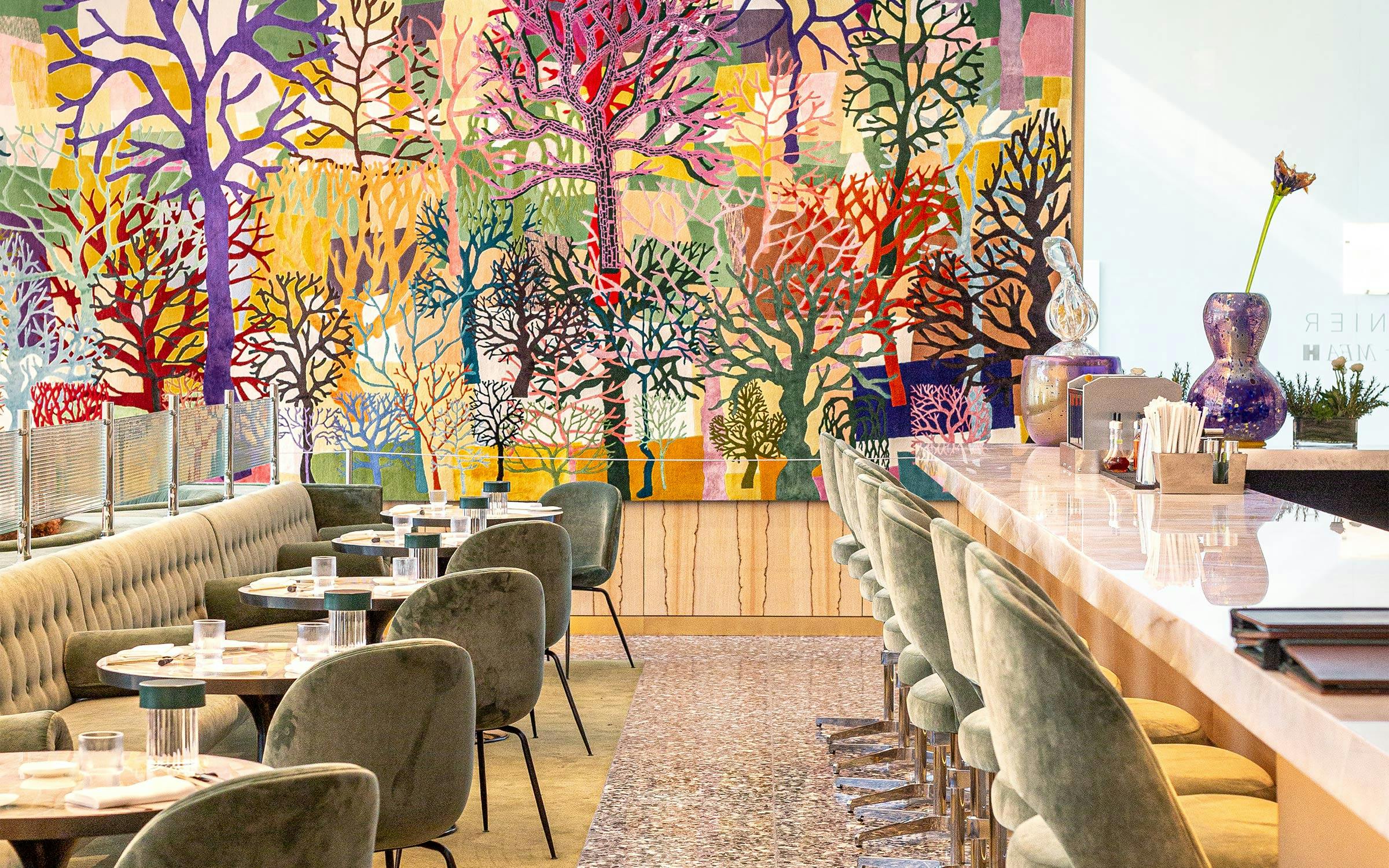In a ceremony in Houston on Monday night attended by the crème de la crème of the Texas restaurant world, France’s Michelin company bestowed single stars on fifteen Texas dining places. The awards are widely regarded as the most prestigious in the culinary world, and it was the first time the French tire company had been successfully coaxed to evaluate the Lone Star State. In an astonishing display of the power of Texan cuisine, four barbecue joints—three in Austin and one in Spring—were among the fifteen. Michelin did not designate any two- or three-star Texas restaurants.
Before the ceremony started at Houston’s 713 Music Hall, anticipation was pumped up to a fever pitch by pulsing music, flashing lights, and videos of luscious-looking food and bustling Texas scenes. There was also a recorded video greeting from four astronauts at the International Space Station that featured rapidly spinning, weightless fruits and vegetables. The plump cartoon Michelin Man, in his hallmark white outfit, had the run of the stage, posing for pictures with the awardees. Knots of supporters throughout the auditorium erupted in applause and hoots as the awards were announced. Awardees walked or ran to the stage to don white Michelin jackets and pose for official pictures. The ceremony was fairly short—around two hours—thanks to the wise decision to not include speeches by the winners.
If there was an overarching feeling about the choices (check out the full list of winners), it was that while many, if not most, of the awards—which, in addition to stars, included lesser designations such as Bib Gourmand and Recommended—were accurate and well deserved, a minority were strangely off and did not jibe with the ways locals have long regarded certain restaurants (some favorite excellent restaurants got relatively low rankings; others were missing altogether). Undoubtedly, that had much to do with the huge number of visits Michelin inspectors had to make in a relatively short period of time. (The inspectors’ identities are more closely guarded than the secret formula for Coca-Cola.) The ratios were off, too. The fact that Houston did not have the highest number of stars, given its stellar and multifarious dining scene, seemed strange. (Austin ranked first.) And the inspectors also seemed unduly smitten with barbecue—not a bad thing at all (don’t misunderstand me), but the preponderance of barbecue joints compared to other restaurants was notable. It was almost as if Michelin had just discovered barbecue for the first time.
The evening’s gala celebration was the result of months, if not years, of discussion and dealmaking between Michelin and the Texas tourism and restaurant industries to bring the company to the state. The agreement that sealed the deal was the payment, over three years, of a cumulative $2.7 million from the five major cities involved and the state tourism-promotion office, Travel Texas.
The money goes into a general coffer at Michelin. It does not go directly toward meals, nor does it buy any guarantee of how many stars or other awards will be handed out. The agreement, announced July 16, is similar to the tax breaks and other pot sweeteners paid by cities nationwide to attract sports franchises and tech companies. The payers are betting that Michelin-recognized restaurants will bring food-centric tourism to Austin, Dallas, Fort Worth, Houston, and San Antonio.
By the end of the evening, when a hail of real and light-generated confetti rained down on the auditorium, many revelers headed out to the lobby to drink Champagne and sample the buffet. Others were ready to seriously party. If you listened carefully, you could hear variations on “How could they have left out . . . ?” and “Why in the world did they choose . . . ?,” but the feeling in the room was still overwhelmingly jubilant.
After all, these are the champions, at least for now. The restaurant industry has had a hard time in the years since the COVID pandemic started, and it needs a boost. The Texas tourism industry that organized and subsidized the Michelin effort will be keeping a close watch on the numbers. A year from now, we’ll know if the Michelin magic is working. Or not.

